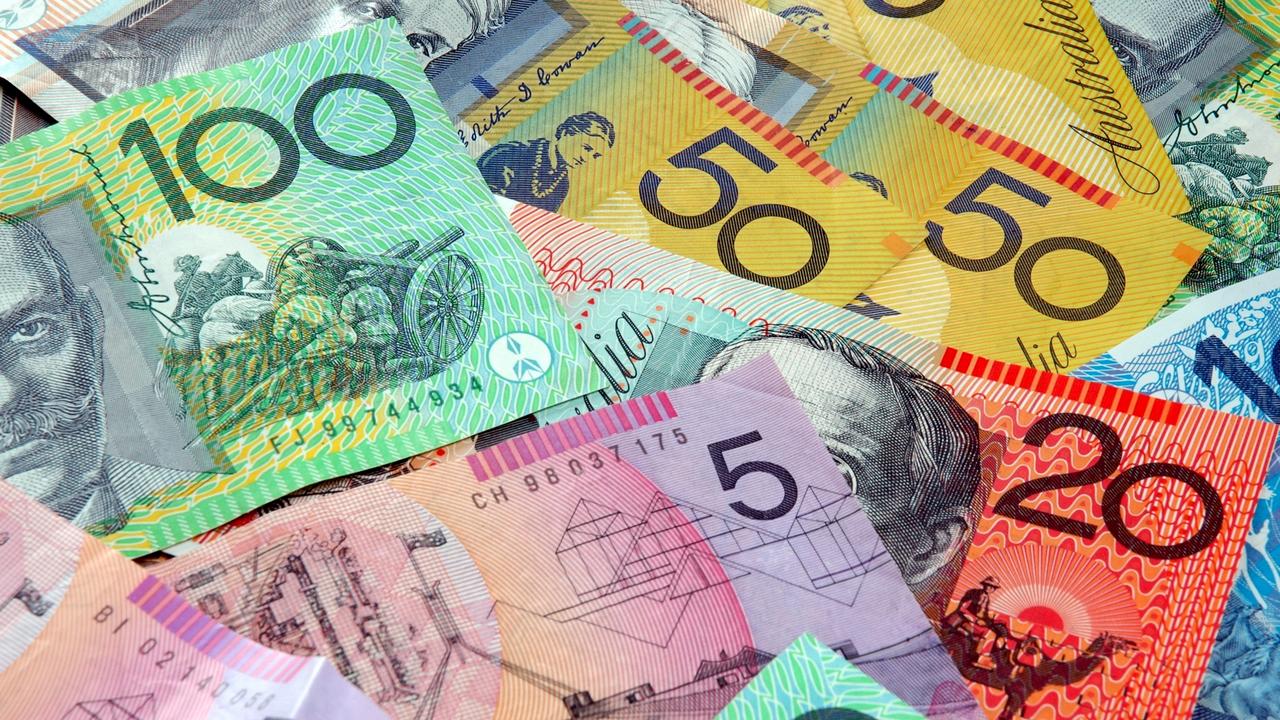Household bills overtake rent and mortgages to be the biggest drain of Australians’ money
For the first time, mortgage and rent costs have been overtaken as our biggest money headache. But there are things you can do to ease the pain.

Paying off a house and rent have long been seen as the biggest financial burdens for Aussies juggling their finances.
But for the first time, bills have overtaken rent and mortgage payments as the biggest drain on family budgets, according to our new Cost of Living Survey.
Every two years, news.com.au runs its Cost of Living Survey to find out our readers’ biggest household money worries. The results of the most recent survey are in, and news.com.au has kicked off the Money Project, revealing the biggest money challenges facing Australians and offering practical help on how to get your finances in shape for 2020.
For the first time since the Cost of Living Survey started, news.com.au has found bills, including groceries and petrol are the biggest household expense for 69 per cent of respondents, a 13 per cent increase from the previous survey in 2017.
As part of the survey, respondents were asked if they felt they were on “Struggle Street”, “Barely Coping”, “Doing OK” or on “Easy Street” based on how they felt they were faring financially – and the impact of bills came up again and again for readers across most categories.
“At our age, we haven’t been able to afford a property. Have little savings and spend most of our salaries on paying basic bills,” one respondent on Struggle Street said, while a single mum who identified herself as “barely coping” described struggling with the rising “cost of petrol, utilities, rent, school fees”.
“Even though I work full-time I’ll never be able to save for a house as a single mum,” she said.
Bills were closely followed by rent and mortgage costs at 66 per cent, down from 72 per cent in 2017, and groceries at 54 per cent, up from 47 per cent.
Petrol and public transport came next at 26 per cent, followed by putting kids through school at 13 per cent, eating out at 6 per cent, entertainment at 4 per cent and looking good at just 1 per cent, while “other” expenses accounted for 12 per cent.
While bills were a universal issue for Australians, different demographics had their own challenges and specific priorities.
Younger respondents were more concerned with lifestyle spending while older Australians spent more on providing for their families.
For 25 to 34-year-olds, the biggest expense was eating out, followed by entertainment and looking good, which was the biggest expense for 18 to 24-year-olds.
In the 35-44 age group, putting kids through school came out on top, followed by rent and then groceries, while those aged 55-64 and above spend most of their money on petrol or public transport.
The breakdown of expenses continues the trend from 2014-2017 where respondents started spending less on non-essentials like looking good, entertainment or eating out.
Meanwhile, more than half of respondents put between 26 per cent and 50 per cent of their pay on the rent or mortgage. Almost three-quarters of those who are on “Easy Street” spend up to 25 per cent of their pay on housing, while a quarter of those who are “barely coping” spend more than 50 per cent of their pay on housing, up from 40 per cent in 2017.
WHY YOUR BILLS ARE SO HIGH
There are a number of reasons why bills have increased in recent years, including the growth of subscriptions services like Netflix.
However, power bills tend to cause the most pain, with the latest Australian Competition and Consumer Commission (ACCC) report finding the average electricity bill was 20 per cent higher than at the same time in 2009, although there was a 4 per cent drop compared to the previous year, and the average residential bill between July 2018 and September last year was roughly $65 less than the previous period.
The ACCC found those with solar panels paid close to $550 less a year in bills and said renewables needed to be considered more in the energy debate.
“Indeed, all customers who can, should consider how much they could save by installing solar panels,” ACCC chair Rod Sims said.

SLASH YOUR BILLS
However there are ways to save on energy bills right now, according to Dan Adams, the founder of new power company Amber, which gives consumers direct access to wholesale electricity prices.
“Big energy companies have created power bill confusion so it can be hard to compare, and while most people can save by shifting, it can be difficult to do,” Mr Adams said.
He said that these wholesale prices change every half-hour and by getting direct access, Australians can save hundreds.
“These prices do vary more but already our customers are saving $400 a year by accessing the wholesale price,” he said.
Part of the reason is because consumers are able to time their electricity usage to when it’s cheapest.
Big energy appliances, like washing machines and even pool systems, can be operated when there’s more energy in the grid, particularly renewable energy.
“Renewable energy is the cheapest form of energy and when there’s more of that in the grid the wholesale price goes down,” Mr Adams said.
“So not only can you save money but you can also help the planet.”
Bessie Hassan, money expert at comparison site finder.com.au, said bundling your electricity and gas under a single plan can often help to cut the cost of your energy bill.
“Speak to your provider about your options,” Ms Hassan said. “Use your loyalty for leverage. If you’ve been with your provider for a number of years it might be time to ask for a discount.”
She said there were also savings to be made when it comes to health insurance, groceries and mobile phone bills.
“Some health insurers will offer a discount if you pay your premium annually. If you pay your premium before the April 1 price hikes, you can also lock in your next 12 months of cover at the old price,” Ms Hassan said.
“Plan your weekly meals ahead of time and only buy what you need. Look for supermarket specials and freeze leftovers. This can help to cut your grocery spend.
“And if possible, opt for a SIM-only mobile plan, rather than a postpaid one. This type of plan is usually significantly cheaper, and you don’t run the risk of being charged extra for exceeding your data limit.”
Ms Hassan also urged Aussies to consider switching their broadband plan and to refinance if they were unhappy with their current home loan rate – a move which could save thousands of dollars each year.



